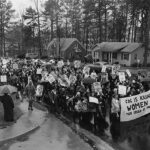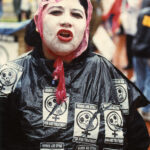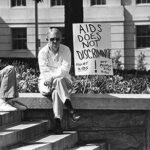People with Aids



In the summer of 1981, the Centers for Disease Control (CDC) first reported unexpected outbreaks of Kaposi’s sarcoma and pneumocystis pneumonia among otherwise healthy gay men. The CDC named the new disease GRID – Gay-Related Immune Deficiency. In 1982, as it became clear that women, hemophiliacs, and intravenous drug users were contracting the disease, it was renamed AIDS – Acquired Immune Deficiency Syndrome. The disease went on to reach pandemic proportions in the United States and around the world. Southern states, and in particular, Georgia have been severely impacted by the disease. Black men and transgender people were and still are disproportionately affected by HIV/AIDS. Systemic racism in education and healthcare means that people don’t receive adequate sex education or access to health care providers and testing. This is compounded by poverty, homophobia, transphobia, and stigmatization.
Special Collections has the original documents from the local individuals and organizations that were on the front lines throughout the AIDS crisis. The LGBTQ Institute’s Jim Allen papers and Andrew Wood papers documents Wood’s and Allen’s journeys as community activists with the national group “AIDS Coalition to Unleash Power (ACT Up). They both worked in their communities to end the AIDS crisis through protest and other forms of civil disobedience in an effort to galvanize attention and action from an otherwise apathetic and complacent government.